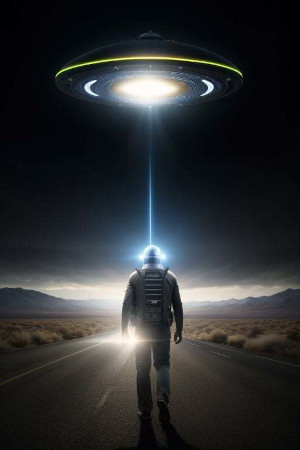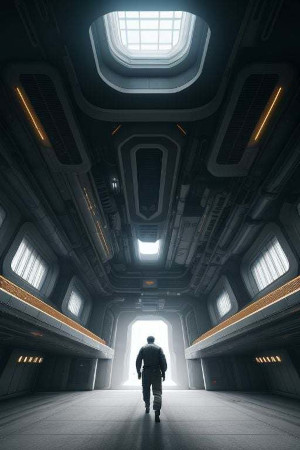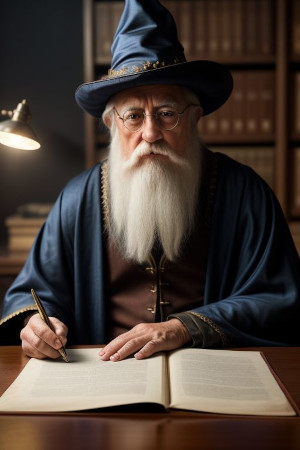2022
Feb
10
Darkness and Silence
Darkness. Silence like sticky clay adhering to my pores and creeping up my nostrils. It is darkness against which my eyes fight to close, for to hold them open makes them claw through the dense blackness in search of anything to see, until at last they make something up. It doesn't have to be that dark; there is a display panel at eye level, but with irises so stretched that even on low, it's like a green floodlight glaring in my face, so I keep it off. Sasha is probably in the common area with her nose in her e-reader enjoying Solzhenitsyn, and every now and then she lets a little light leak out, but it's rarely enough for me to notice with the door to my cabinet closed.
My ears, too, reach out in desperation until, frustrated, they turn inward to my own heartbeat. The laminar-flow ventilation fans are all but silent unless they kick into high, which rarely happens. The only sound that disturbs the night is the occasional ticking of the thermal radiators nearby outside as they expand and contract. The reactors are at constant power, but there are variations in solar energy. The only solid punctures of oblivion are when Sasha uses the head: the door opening and latching, the suction pumps coming on, something for my ears to latch onto if I'm awake. She probably has the same experience when I go during her sleep cycle. It's impossible to pee discretely in space.
But the darkness and silence are merely the dull black shroud over the sense of isolation. We are 400,000km from home, a distant blue world that now hung hopelessly beyond natural human reach. If there were a bridge it would take 50 years to walk it. Ahead of us, to the sides, above, behind, outside the relatively thin honeycombed titanium layer that separates our tiny bubble of life from the abysmal infinity, there is absolutely nothing for a journey of a million human lifetimes. Below, a drop of 6.7 million meters to the desolate, hostile surface of the moon. The rugged orb beneath us unrolls slowly, almost 14 hours per orbit, but we have to be high enough to relay signals between Earth and the three research posts we dropped on the moon's far side. An orbit that physics on its own locks into eternity. If we died there, our desiccated corpses would still be following that path 10 million years later, endlessly. There is no sense of solitude greater. Even pairs of people condemned to duty in lonely missile silos and remote microwave relay stations have the familiar contact of breathing Earth's own atmosphere.
 My limbs want to drift off into the neutral human body posture, but find themselves confined by my sleeping sack. Still, I'll sleep, for in the morning — if the word "morning" makes sense — I'll have to adjust that orbit. That's my job, to keep the orbit in alignment as the moon revolves on its 28-day loop so that both the Earth and all three drop stations are in constant radio contact. We always do that while we're both awake. She is supposed to be on the sleep schedule of Baikonur Cosmodrome in Kazakhstan just as I'm supposed to be on that of the Eastern U.S., but they tweaked us both an hour to give us a comfortable eight hours awake together. It's my job to adjust the orbit, hers to help interface me to a spaceship engineered in a language I suck at. Her English is much better than my Russian.
My limbs want to drift off into the neutral human body posture, but find themselves confined by my sleeping sack. Still, I'll sleep, for in the morning — if the word "morning" makes sense — I'll have to adjust that orbit. That's my job, to keep the orbit in alignment as the moon revolves on its 28-day loop so that both the Earth and all three drop stations are in constant radio contact. We always do that while we're both awake. She is supposed to be on the sleep schedule of Baikonur Cosmodrome in Kazakhstan just as I'm supposed to be on that of the Eastern U.S., but they tweaked us both an hour to give us a comfortable eight hours awake together. It's my job to adjust the orbit, hers to help interface me to a spaceship engineered in a language I suck at. Her English is much better than my Russian.
Sasha, known more verbosely as Aleksandra Nikolayevna Krayovskiya, has chin-length light blond hair and a cute pixie face, but she's not one of those siren Raquel Welch sexpot scientists you see in movies. She has no seductive figure. She's 13, one of Russia's two pride-and-joy child cosmonauts whose existence attests to the advanced state of their space program. The other, Tasha, is 17, dangerously close to adulthood and therefore of dropping off their propaganda slate. American officials think the whole thing is ridiculous, a publicity stunt, which it probably is, but I'll likewise attest that Sasha is by no means ridiculous. She's brilliant; you have to be to read Solzhenitsyn. But she's not allowed to fire the engines on her own unless it's a level five emergency. She likes to tell me that as a junior lieutenant, she outranks me, an ensign, but we're both NATO classification OF-1, so technically on a joint mission, we're equal.

There's a rumor that we both might be chosen for the Mars mission later this year. Her parents are supposedly throwing a fit about her being gone for the three years it would take for traditional Hohmann transfer orbits. She says they protested this mission. But in Russia, political pressure easily outweighs parental rights, and the powers that be dearly want their public relations trophy on that trip! Tasha would obviously be an adult when we return, and there isn't time to get a new kid ready for the press releases. Besides, ballistic capture is common now (that's how we got to the moon) and they're taking a serious look at aerobraking, which of course wouldn't have worked with the moon. No atmosphere. Aerobraking worries me — I saw 2010! Either way, we might be able to shorten the journey to as little as nine or ten months even if we miss the Hohmann window. That mission will be a joint US, European, Russian, and Chinese effort. They're still arguing over the ship's name, but it's supposed to have a centrifuge, even if the sleeping compartments will still be in zero-g.
But that's all speculation, four months in the future. Right now, my eyes are wanting to stay closed instead of open. That's good. I need to be alert for that orbital maneuver tomorrow. The computer does all the hard work, but they won't let it do the piloting or even start the engines. It's no HAL 9000.
До свидания!
No, that was not one of my stories. That came from a dream. But that wasn't exactly the dream. That was the memory of the mission I had while we were at an international space conference in Canada and my nephew was making out with Tasha, pissing off the Russian authorities who didn't want one of their child cosmonauts de-virginized. Sometimes my dreams come in astonishing detail, so it's no surprise a lot of my stories originate there.















Comments
There are no comments for this post.
You must be logged in to post a comment.